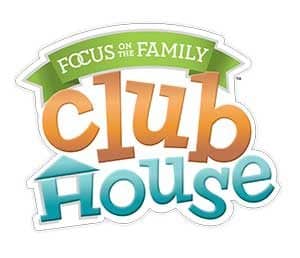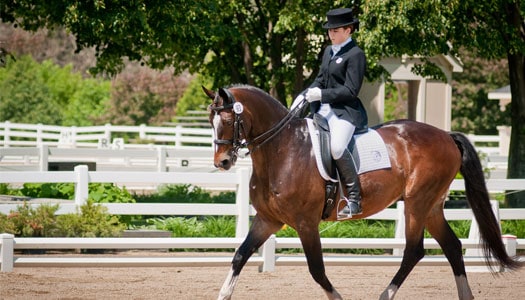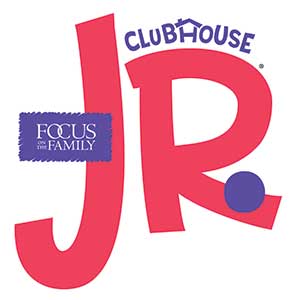Medal Rounds: August 9 (Eventing); August 12, 15 (Dressage); August 17, 19 (Jumping)
Get Out and Play!
Gather:
large, plastic tablecloth (or paper and tape)
washable markers
Go:
1. Draw a large grid on the tablecloth using markers. (If you prefer, you can tape sheets of paper together.) Each square should fit an adult’s foot.
2. Copy one of the grids below onto the tablecloth.
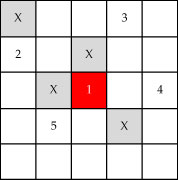 |
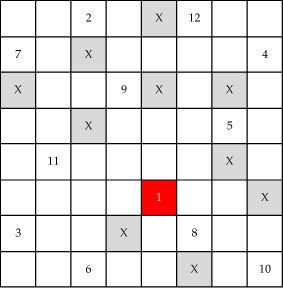 |
|
|
Beginner |
Expert |
3. The game requires a “horse” (a parent or older sibling) and a rider. The horse carries the rider on his back. The rider tells the horse where to step.
4. Horse and rider begin at square 1 and must walk to each number in order without stepping on an X or any number out of sequence. The horse may move forward or back, left or right. Diagonal moves are not allowed.
5. The judge counts the number of steps needed to complete the puzzle. (Stepping on a forbidden space receives a 3-step penalty.)
6. The horse and rider who complete the maze with the fewest total steps wins.
A Champion’s Heart
A gentle answer turns away anger, but a harsh word stirs up wrath. —Proverbs 15:1
It’s difficult to imagine your great-grandma competing in water polo or the shot put. But athletes young and old can ride horses at an elite level. At the London Olympics, equestrian competitors ranged in age from 71 years old to 18.
Why do we honor riders when the horses do most of the work? For one thing, horses don’t like to wear medals. More importantly, dressage and other equestrian events test a rider’s ability to maintain perfect control over a creature with a brain of its own. The sport requires discipline, stamina and gentleness.
Think about the people you work with, whether on school projects or the soccer team. Unlike a horse, they speak your language. But when the group needs to work together, do you boss them around? Do you shout and demand they do things your way? That doesn’t feel good, and it certainly doesn’t make others want to give 100 percent. If you tried that with a horse, it would throw you to the ground.
Jesus had incredible power. He silenced a storm, fed crowds with a handful of food and brought people back from the dead. But He never used that power to control people. Instead, He was gentle and kind, showing love to the unlovable. The disciples wanted to follow Him.
When you lead a group, do they know you’re in control? How do you take charge without making others feel bad?

